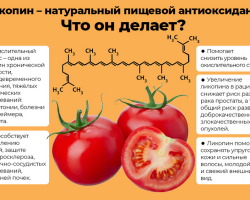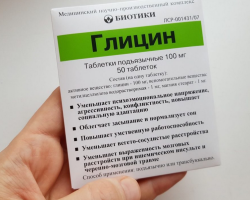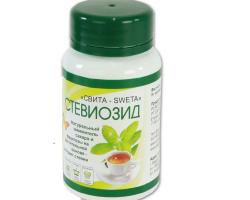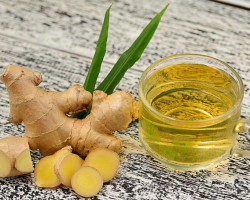If you think that citric and ascorbic acids are no different, read the article. Everything is clarified in it.
Content
- What is ascorbic acid?
- What is citric acid?
- What is the difference between citric acid and ascorbic: what's the difference?
- Is there vitamin C in citric acid?
- Video: 5 ways of unusual use of citric acid! What can be done using citric acid?
- Video: Vitamin C - What is the benefit and danger?
- Video: citric acid benefits and harm, methods of application
For many, the terms ascorbic acid and citric are identical, but in fact it is not. After all, these are completely different things, although they are mainly found in citrus fruits and have nutritional properties.
Read on our website another interesting article on the topic: "Treatment with lemon various diseases". You will learn about the benefits of lemon for weight loss.
From this article you will learn what ascorbic and citric acids are, how they differ. Read further.
What is ascorbic acid?

On the site iherb A lot is offered Bades with ascorbic acid. These are really those means that will benefit the body.
The value of ascorbic acid, most known as vitamin CFor a long time, no one has doubts for a long time. It is indispensable in numerous processes occurring in the human body. However, ascorbic acid is not produced by the body independently and does not accumulate in the tissues, so it is very important to receive it along with food. What is ascorbic acid?
Vitamin C He takes part in the synthesis of collagen, which is the foundation of the structure of our skin, ligaments, cartilage and tendons, and is also contained in the walls of blood vessels, teeth, nails and muscle system. Such synthesis helps to protect the body from premature aging. But this is not the only useful property vitamin C..
- It contributes to the struggle of the body with various infectious and inflammatory diseases, and also accelerates the healing process of wounds.
- The intake of ascorbic acid reduces blood pressure and strengthens the walls of blood vessels, which helps to reduce the risk of developing cardiovascular diseases.
- a lack of vitamin C. leads to bleeding gums, anemia and worsening of the condition of the skin and nails.
Rich sources of ascorbic acid are:
- Dog-rose fruit
- Black and red currants
- Strawberries
- Bulgarian pepper
- White cabbage
- Sorrel
- Parsley
- Dill
- Potato
- Apples
- Tomatoes
- Citrus
But it is worth remembering that heat treatment and prolonged freezing of these products reduces the level of content in them vitamin C.. The daily consumption rate of ascorbic acid is for a woman - 75 g, and for a man - 90 g.
What is citric acid?

Citric acid is used as a component of the ingredient in many dietary supplements. On the site iherb Different such additives are offered - vitamins and healing complexes. Here link to section with such dietary supplements.
Such a product is present on the kitchen shelf at any housewife. Without it, it is difficult to imagine the preparation of some dishes. What is citric acid?
- It is a chemical related to the class of carbon acid.
- Outwardly, it looks like a mixture of white small crystals with a sour taste.
- Until the 19th century From the unaware of lemons squeezed the juice and then dried it, receiving this product.
- Now they get a bio-synthesis of corn cobs, battles and maniis by bio-synthesis.
Lemon K-te is food and technical:
- The first passes more intensive processing and is packaged in small packages
- The second is weaker and packs in large
Natural sources of citric acid are:
- Black currant
- Raspberry
- Gooseberry
- Apples
- Pineapples
- Lemons, especially unripe
Citric acid, like ascorbic, has a good effect on our body systems. It participates in the process of energy metabolism, which occurs at the cellular level. This is expressed by an improvement in digestion, the elasticity of the vascular walls, a good immune response, an improvement in the condition of the hair onion and skin, the strength of the joints, prolonged visual acuity. It removes toxins and toxins, and also has a diuretic effect.
This product is used in food products as an additive for taste and preservative, and in medicine as a means that helps improve energy metabolism.
What is the difference between citric acid and ascorbic: what's the difference?

Dymon and ascorbic acids are two identical powders. In nature, such substances are mainly contained in berries and fruits, to a greater extent in citrus fruits. These acids have a number of beneficial nutrients, both are used as a preservative. But at the same time, citric and ascorbic acids are absolutely two different chemical compounds. What is the difference between citric acid and ascorbic. That's what the difference is:
- Ascorbic is a vitamin that is very important and useful for the human body, but lemon is not a vitamin.
- Ascorbic is a natural substance, and lemon is mined with the hands of a person and used as a taste additive to food.
- The first is most often used in medicine, this is the most inexpensive natural medicine to strengthen immunity, released without a doctor's prescription.
- But the second is used in the food industry. For example, it is used to enhance the taste in the production of carbonated drinks and sweets. It is also used as a cleaning agent in everyday life, for example, to remove scale or to soften water.
As you can see, there are many differences, and you do not need to confuse these two acids. Below is still interesting information. Read further.
Is there vitamin C in citric acid?
Many people think that these two acids are similar, both to taste and in chemical composition. We found out above that this is not so. Is there a citric acid vitamin C.?
- Since citric acid is not a vitamin, it does not contain vitamin C.
- This is only a food supplement allowed in the preparation of dishes and fruit drinks and other drinks. This is a regulatory acidity and produced by chemically.
In conclusion, we can say that citric acid and ascorbic acid are two different substances that have different properties that are widely separated from each other on the basis of many factors.
Video: 5 ways of unusual use of citric acid! What can be done using citric acid?
Video: Vitamin C - What is the benefit and danger?
Video: citric acid benefits and harm, methods of application
Read on the topic:








75 grams per day of ascorbic acid, you are stubbornly written
I prefer vitamin C to take in hissing tablets, as it is better absorbed. I take a preventive dosage - 250 mg from Evalar, I consider it the most optimal to support immunity.